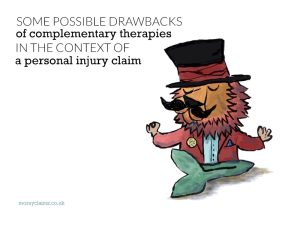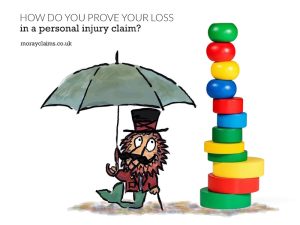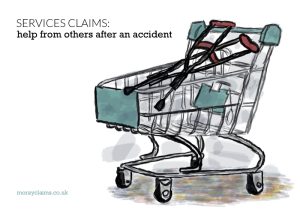It’s natural to be suspicious if someone seems to be offering you something valuable in return for nothing. We are all conditioned to think that if something sounds “too good to be true”, then it must in fact be too good to be true. There are times when we’re vulnerable to letting our guard down – for example, if it’s something we really want – and system tools have evolved to provide some protection. For example, many spam filters will catch emails with “free” in the subject line because use of that one word alone indicates dodgy intentions on the part of the sender. But just because a service is offered as 'provided free of charge' to you, it's not necessarily dodgy as long as the service provider is getting by some other method - such as happens with solicitors working for claimants with personal injury claims. We invite people to ask us questions via our Google Business page. You can ask a question of Moray Claims on Google Business here. You can see the questions Continue Reading
Complementary therapies in personal injury compensation claims
In 2007, I was diagnosed with Lyme Disease, a bacteriological infection you get from deer ticks. Some of the main symptoms were tiredness , lethargy and “brain fog”. I was treated with antibiotics over a period of about 9 months, some oral, some intravenous. I recovered but had some annoying residual symptoms, including neck stiffness and pain. I tried a treatment from complementary medicine, called craniosacral therapy, through Healthworks in Forres, and got a lot of benefit from it. I consider my recovery was due to a combination of conventional and complementary medicine. I am a believer in the benefits of complementary therapies. But I relied primarily on conventional medicine and at all times after I had been diagnosed by my GP and referred for expert opinion, I was under the care of a consultant in the Infectious Diseases department of Aberdeen Royal Infirmary. Complementary therapies have a lot of advantages but in the context of a personal injury claim Continue Reading
How do you prove your loss in a personal injury claim?
What are the things you must do to prove your loss - and to minimise your loss - in a Personal Injury Compensation Claim? How easy is it to value a personal injury compensation claim? In theory, working out the value of your personal injury claim should be straightforward. What your solicitor needs to do is make a comparison between two possible factual scenarios: Both of these key elements are estimates or projections, to some extent. Both will carry uncertainties, to a greater or lesser extent. There are two important things to bear in mind when comparing "your life as it is in fact" (with the accident) with "your life as is should have been" (without the accident). Let's look at each of these in turn. 1. Did the accident cause the loss you are trying to claim. In some instances, this will be “obvious”. For example, if your accident did not cause any injury to your wrist, a claim for physiotherapy costs incurred in relation to the wrist will fail Continue Reading
Services Claims: Help From Your Family After An Accident
(NOTE: This is an updated version of a post originally published on this website on 24 October 2013). If you have been injured in an accident, it may well have put you out of action for a while with the result that you needed help from members of your family. The law in Scotland allows relatives to claim compensation for the time they give up to help you. This might seem strange: you would hope and expect they would do that anyway, without requiring any financial reward. On the other hand, if they were not there to help you, it would make life awkward, at best, and unmanageable, at worst, unless you could get help from some other source. So it makes sense that compensation should be available for them for the time involved in providing you with assistance. Their claim does not stand on its own; it can only be made as part of a personal injury claim by you, the injured person. Two Types of Services Claim There is the possibility to make a claim for two different types of services under Continue Reading



